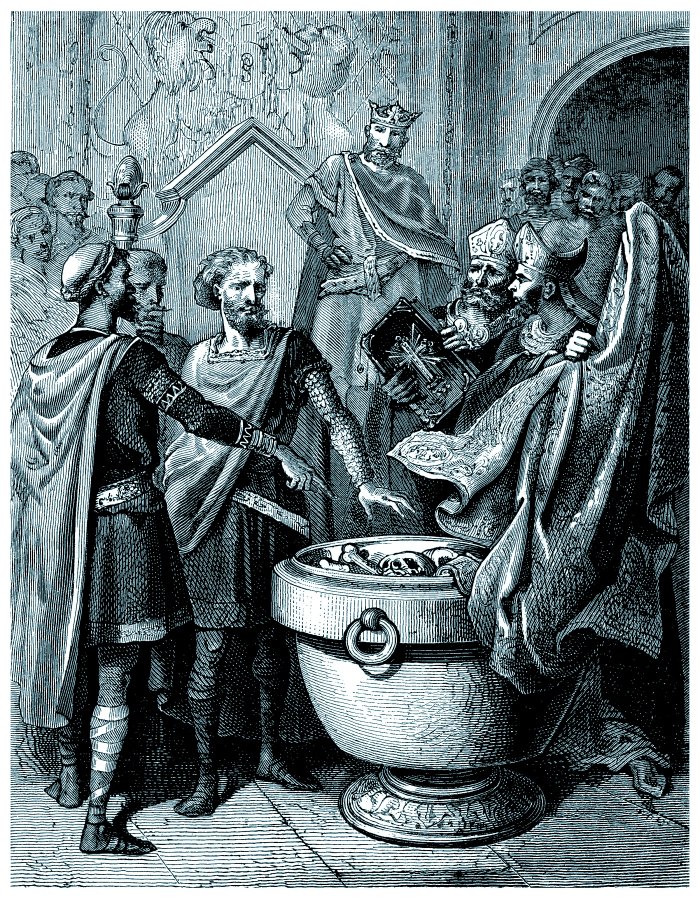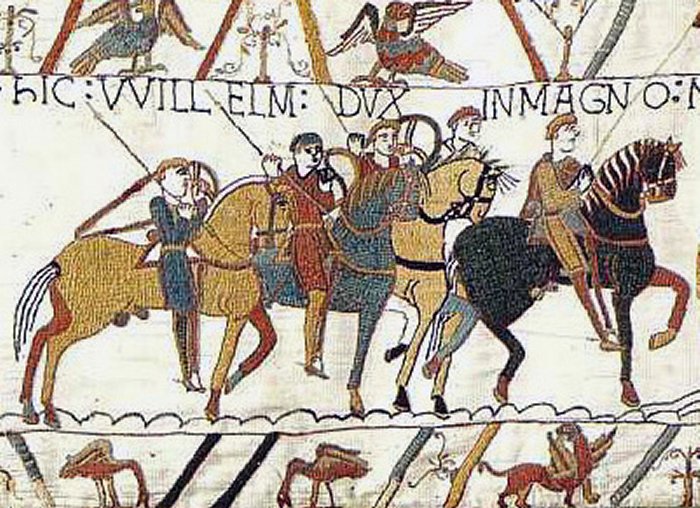William The Conqueror: Ruthless And Powerful Ruler Who Changed Britain Forever
A. Sutherland - AncientPages.com - Wilhelm I Conqueror, also known as "William the Bastard" (ca. 1028 -1087), was King of England and Duke of Normandy.
William the Conqueror & Harold II swearing - 11th century. Image: Adobe Stock - Erica Guilane-Nachez
William was the son of Herleva and Robert I, the Duke of Normandy, France, then known as “Francia”). William was frequently called a bastard, especially by his opponents. The reason was that his mother actually never married his father, Robert, most probably because Herleva was a simple Anglo-Saxon woman and not of noble birth.
Although he was the illegitimate son of the Duke of Normandy Robert the Magnificent (also called "Robert the Devil"), after his father's death in 1035, William was named his successor at only eight years of age. Under the name of William II (in French: Guillaume II), the boy became the new duke of Normandy during a challenging time.
William The Conqueror's Struggle To Gain Power
Corruption, violence, and strong opposition from powerful Norman barons, his bitter rivals, plagued his early reign.
Three of his guardians and his tutor died violent deaths during his childhood. William witnessed the end of his steward, Osbern, whose throat was cut by a Norman rebel while sleeping in William's bed-chamber.
William managed to survive the early years of chaos, both in his own life and in Normandy, with the help of King Henry I of France. From 1046 onwards, he successfully dealt with rebels, troublesome Norman barons, and all those who questioned the right of a bastard to succeed. Then with the support of Henry I, he began to expand his territory.
A late-1800s engraving shows William the Conqueror after the Battle of Hastings. Source
In 1051 the king of England, Edward the Confessor, appointed William as his successor. Edward died in 1066, leaving no direct heirs, and the country was threatened with invasion by two rival claimants, Harald Hardrada, King of Norway, and William, Duke of Normandy.
The English nobles elected to the throne their candidate - Harold Godwin (also called Harold Godwineson or Godwinson), the most powerful of the English lords.
William gathered his army and landed on the island. He was angry; Harold claimed the throne of England for himself, even though he made an oath to William to support his claim. On October 14, 1066, the two armies met in the famous Battle of Hastings.
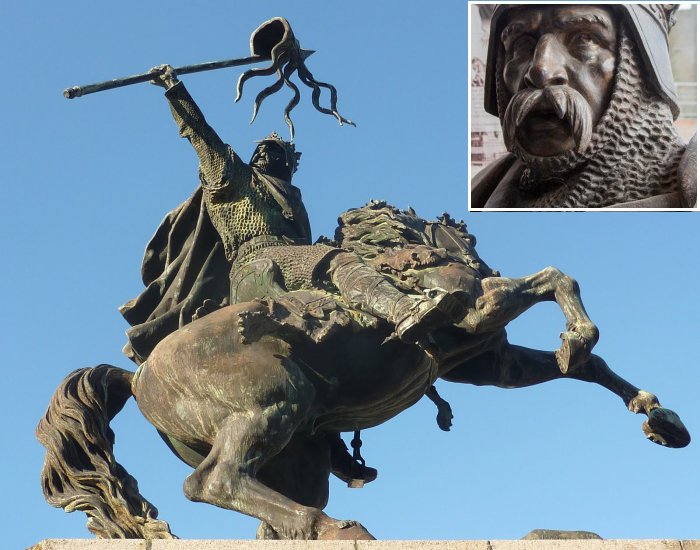 William, I was victorious and he took London without further resistance. Image credit: Man vyi - Public Domain
William, I was victorious and he took London without further resistance. Image credit: Man vyi - Public Domain
According to modern scholars' estimation, each of the sides had between 5,000 and 7,000 men.
William The Conqueror Becomes King Of England
King Harold and his two brothers were killed in the battle. William, I was victorious; he took London without further resistance. He was crowned king of England on Christmas Day, 1066, and ruled until he died in 1087.
However, the conquest of England had not yet ended. Several revolts marked the next five years, and William used them as an excuse to confiscate English land and declare it his property. Subsequently, he distributed the land to his Norman knights, who imposed their unique feudal system.
The following important issue was a nationwide inventory of property landlords and property of the people. William had to determine the taxes he had to pay all his subjects.
The Bayeux Tapestry, chronicling the English/Norman battle in 1066 which led to the Norman Conquest. Image credit: alipaiman - Public Domain
Once an entire picture of England was collated in the Domesday Book, William could send his tax gatherers out. Eventually, the Normans replaced the whole of the Anglo-Saxon aristocracy.
His famous "The Domesday Book" was a detailed register of the population and property of England (now an invaluable source of historical information and still in the Public Record Office in London).
William died on September 9, 1087, in Rouen, France. He had four sons and five daughters; every monarch of England since has been his direct descendant.
He never spoke English and was illiterate, but his influence on England and the English language was enormous.
"William the Conqueror was a fierce warrior that may cause gentler people to shudder. However, our world needs such people. Without them, we might destroy ourselves and our civilizations based on disorganization and a lack of cohesive leadership..." 1
Written by – A. Sutherland AncientPages.com Staff Writer
Updated on February 25, 2023
Copyright © AncientPages.com All rights reserved. This material may not be published, broadcast, rewritten or redistributed in whole or part without the express written permission of AncientPages.com
Expand for referencesReferences:
Ed Sharrow - The Last Battle: The Life of William the Conqueror
Edward Freeman - William the Conqueror
Abbott Jacob, William the Conqueror
- in60Learning, William the Conqueror: The King Who Changed the Course of British History
More From Ancient Pages
-
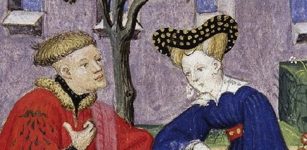 Why Was Lovesickness A Feared Disease During The Middle Ages?
Ancient History Facts | Feb 8, 2018
Why Was Lovesickness A Feared Disease During The Middle Ages?
Ancient History Facts | Feb 8, 2018 -
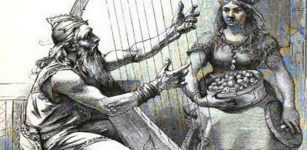 Bragi – Norse God Of Poetry, Eloquence, Music And Singing And Husband To Idun Who Protected Golden Apples
Featured Stories | Mar 17, 2018
Bragi – Norse God Of Poetry, Eloquence, Music And Singing And Husband To Idun Who Protected Golden Apples
Featured Stories | Mar 17, 2018 -
 On This Day In History: Magellan’s Expedition Circumnavigates Globe – On Sep 6, 1522
News | Sep 6, 2016
On This Day In History: Magellan’s Expedition Circumnavigates Globe – On Sep 6, 1522
News | Sep 6, 2016 -
 Piecing Together Scotland’s Religious Past With Shards Of Glass
Archaeology | Feb 28, 2023
Piecing Together Scotland’s Religious Past With Shards Of Glass
Archaeology | Feb 28, 2023 -
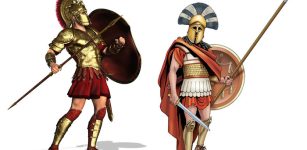 Who Were The Hoplites And What Was Their Armor Composed Of?
Ancient History Facts | Apr 20, 2018
Who Were The Hoplites And What Was Their Armor Composed Of?
Ancient History Facts | Apr 20, 2018 -
 How Did These Beautiful Venetian Glass Beads Reach North America Long Before Columbus?
Archaeology | Feb 15, 2021
How Did These Beautiful Venetian Glass Beads Reach North America Long Before Columbus?
Archaeology | Feb 15, 2021 -
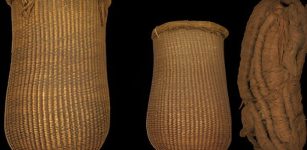 9,500-Year-Old Baskets And 6,200-Year-Old Sandals Found In Spanish Cave
Archaeology | Sep 28, 2023
9,500-Year-Old Baskets And 6,200-Year-Old Sandals Found In Spanish Cave
Archaeology | Sep 28, 2023 -
 Stonehenge’s Monumental Altar Stone Came From Scotland – Not Wales As Previously Thought
Archaeology | Aug 16, 2024
Stonehenge’s Monumental Altar Stone Came From Scotland – Not Wales As Previously Thought
Archaeology | Aug 16, 2024 -
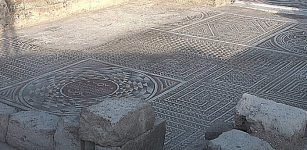 Large 4th Century Mosaic Floor Unearthed In İncesu, Kayseri Province, Turkey
Archaeology | Nov 28, 2023
Large 4th Century Mosaic Floor Unearthed In İncesu, Kayseri Province, Turkey
Archaeology | Nov 28, 2023 -
 Death And Afterlife In Sumerian Beliefs
Civilizations | May 12, 2017
Death And Afterlife In Sumerian Beliefs
Civilizations | May 12, 2017 -
 Why Were Ancient ‘Puppet’ Figurines Placed Atop A Pre-Columbian Pyramid In El Salvador?
Archaeology | Mar 5, 2025
Why Were Ancient ‘Puppet’ Figurines Placed Atop A Pre-Columbian Pyramid In El Salvador?
Archaeology | Mar 5, 2025 -
 Is This The Face of Queen Elizabeth I?
Archaeology | Oct 15, 2018
Is This The Face of Queen Elizabeth I?
Archaeology | Oct 15, 2018 -
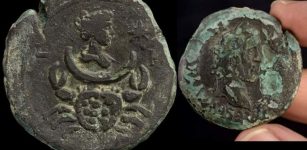 1,850-Year-Old Rare Bronze Coin, Depicting Roman Moon Goddess Luna – Unearthed
Archaeology | Aug 3, 2022
1,850-Year-Old Rare Bronze Coin, Depicting Roman Moon Goddess Luna – Unearthed
Archaeology | Aug 3, 2022 -
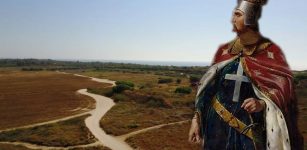 Battle Of Arsuf – Site Where King Lionheart And The Crusaders Defeated Saladin – Found
Archaeology | Aug 1, 2020
Battle Of Arsuf – Site Where King Lionheart And The Crusaders Defeated Saladin – Found
Archaeology | Aug 1, 2020 -
 Troll Cross – Protection Symbol Believed To Ward Off Evil Powers
Ancient Symbols | May 12, 2018
Troll Cross – Protection Symbol Believed To Ward Off Evil Powers
Ancient Symbols | May 12, 2018 -
 Massive Well-Preserved Second Temple-Era Aqueduct Unearthed In Jerusalem
Archaeology | Aug 29, 2023
Massive Well-Preserved Second Temple-Era Aqueduct Unearthed In Jerusalem
Archaeology | Aug 29, 2023 -
 Vikings Visited America 1,000 Years Ago – Solar Storm And Archaeology Confirm Icelandic Sagas
Archaeology | Oct 22, 2021
Vikings Visited America 1,000 Years Ago – Solar Storm And Archaeology Confirm Icelandic Sagas
Archaeology | Oct 22, 2021 -
 Stone Age Infants Received Care For Nine Hours Per Day From Up To 15 Different Caregivers – Study Informs
Archaeology | Nov 15, 2023
Stone Age Infants Received Care For Nine Hours Per Day From Up To 15 Different Caregivers – Study Informs
Archaeology | Nov 15, 2023 -
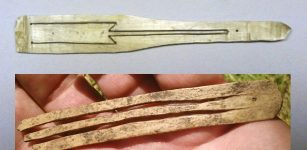 Jew’s Harps: Old Musical Instruments Discovered In Altai Mountains
Archaeology | Jan 9, 2018
Jew’s Harps: Old Musical Instruments Discovered In Altai Mountains
Archaeology | Jan 9, 2018 -
 2,500-Year-Old Mummy Workshop Discovered At Saqqara Necropolis, South Of Cairo, Egypt
Archaeology | Jul 18, 2018
2,500-Year-Old Mummy Workshop Discovered At Saqqara Necropolis, South Of Cairo, Egypt
Archaeology | Jul 18, 2018

